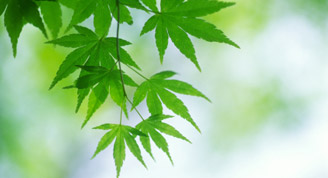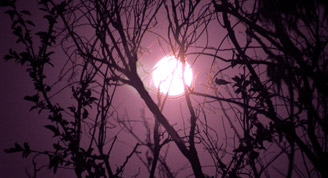Sri Krishna is the Ultimate Principle (Para-tattva). Part I
From SREE SAJJANA-TOSHANI
THE HARMONIST
OCTOBER, 1928
Sri Chaitanya Charitamrita has the following transmitted word (amnaya) regarding Sri Krishna (Madh. 20-146), —‘The Vedas everywhere expound Krishna only, sometimes directly, sometimes indirectly, in some parts by the synthetic or positive method elsewhere by the differential or negative method,—but they always expound Krishna and nothing except Krishna.’ And again (Adi 2—106, 65, 24-26), ‘Krishna is Godhead Himself. Krishna is the support of all. Krishna is the Supreme Lord. This is the declaration of the Shastras. In His own proper self Krishna is non-bifurcial (advaya) knowledge and also the Entity that is the Object of knowledge. Brahma (the Great), the supreme soul (paramatma) and Bhagaban (God as Possessor of supreme power and majesty) are His three different forms. The Vedas, Bhagabat, Upanishad and Agama declare Him to be the complete Object of Knowledge, Who has no equal, Who is seen by devotees by the process of loving service in the same manner as the sun’s own form, as distinct from its rays and the luminous ball, is visible to the devas. Those who worship Krishna by the methods of yoga and empiric knowledge realize Him as the Supreme Soul (paramatma) and Brahma (the undifferentiated Great One) respectively.
The following texts of the shastras bear out the above statements of the Sri Chaitanya Charitamrita regarding the characteristics of the Supreme Lord. The Svetasvetar Upanishad (5.4 mantra) says ‘that He is worshipped by all. He is present as the supporter of existence of every living entity that has birth.’ Whence in the Bhagabat (1-3-28) we have it that ‘the Avatars whose activities have heretofore been described are some of them fractional parts of Maha-Vishnu Who reposes in the causal Ocean (karnarnaba), while the others are manifestations by Divine superimposition. But Krishna, the Son of Nanda is the Godhead Himself.’ The Geeta (7-7 &15-15) says, ‘O Dhananjaya, there is no one higher than Myself.’ ‘I am the Object of knowledge of all the Vedas.’ Sri Gopal-tapani Upanishad (Purba-tapani mantra 21) declares that ‘therefore Sri Krishna alone is the Supreme Lord. Such is Krishna. Meditate on Krishna, chant only His Name, serve and worship Him alone. Krishna Who is all-pervasive, is the Lord of all, should alone be worshipped by all. Although He is one yet He manifests Himself in many Forms such as the Fish, Tortoise etc., Vasudeva, Samkarshan etc, the Purusha of the Ocean of cause, He of the ocean of conception etc. Those equable personages, like Sukadeva, who worship God’s holy Image resident in His proper realm are alone enabled to attain the state of eternal bliss. None of those who worship Brahma (the Great) or Paramatma (Supreme Soul) obtain such bliss.’ This is still further explained by the Karika, ‘Sri Krishna alone is the only Lord of all lords. The supreme soul is a fractional part of Him. Brahma is the glow of His body. Narayana, the Lord of para-byom, is the manifestation of His Majesty as the Sovereign paramount. There is not the least doubt regarding this as it is specifically declared by the Vedas and the shastras.’ The Taittiriya Upanishad contains the following (2-1),—‘Brahma is the Truth Itself, the spiritual and limitless principle. The Paramatma is the Entity that always abides in the innermost recess of the heart as seer of the heart. Narayana is located in the parabyom or Vaikuntha (i.e. the transcendental realm). One who knows this attains all blessing in the presence of Bipaschit (possessed of superior knowledge) Brahma [i.e. Sri Krishna Who is the superior (or, literally, ‘versed in the Divine lore, erudite’) Brahma]. This possession of superior knowledge is one of the principal of the sixty-four qualities of Sri Krishna.
This list of His qualities is given below. (Bh. Ras. Sin. D. B. 1L,11-17):
‘The hero Krishna is (1) of a most pleasing appearance, (2) possessed of all auspicious features, (3) very beautiful, (4) possessed of force of personality, (5) strong, (6) in the first bloom of youth, (7) versed in various and strange languages, (8) truthful, (9) agreeable in speech, (10) skilled in speech, (11) a good scholar, (12) intelligent, (13) possessed of genius, (14) full of humour, (15) clever, (16) skilful, (17) grateful, (18) very firm of resolve, (19) acquainted with the nature of the place, time and person, (20) possessed of the shastric vision, (21) pure, (22) the master of His senses, (23) calm, (24) self-controlled, (25) forgiving, (26) profound (reserved), (27) patient (persevering), (28) impartial, (29) generous, (30) pious, (31) heroic, (32) merciful, (33) ready to honour others, (34) open-handed, (35) gentle, (36) bashful, (37) the supporter of His dependents, (38) happy, (39) friend of His devotees, (40) liable to be won by love, (41) the promoter of the happiness of all, (42) awe-inspiring, (43) possessed of fame, (44) beloved of the people, (45) partial to the good, (46) winner of the hearts of females, (47) worshipped by all, (48) opulent, (49) superior to all, and (50) possessed of kingly magnificence.
The above qualities are found in Krishna in vast measure. Rarely they are also found to exist in jivas but in a very, very small degree. All of them are fully manifest in Krishna. There are five other qualities which are found in Siva and others who possess partially Divine natures, in addition to the above fifty. These five ultra qualities are (1) the characteristic of always existing in one’s own proper condition, (2) omniscience, (3) perpetual newness, (4) the possession of the full concentrated blisses of existence, self-consciousness and joy, and (5) control over all success. In addition to the above fifty-five qualities there are five more to be found in Narayana viz. (1) inconceivably great power, (2) a body that accommodates billions of worlds, (3) the germ from which spring all the Avatars, (4) the power of bestowing salvation to slain enemies and (5) the capacity of attract those who are contented with the joys of their own selves. There are four more wonderful qualities in Krishna viz. (1) the surging ocean of the most wonderful and exquisite pastimes, (2) the circle of His beloved ones hallowed by matchless, delicious love, (3) the profuse strain of the music of His flute that draws to itself the minds of all the dwellers of the three worlds, and (4) the beauty of His form that has neither equal nor superior and which is the greatest marvel to all things animate and inanimate.
The difference between Narayana and Sri Krishna is indicated by the epithet ‘bipaschit’ in the passage of the Taittiriya quoted above. Krishna is ‘bipaschit’ Brahma. He is superior to Brahma who is identical with the immensity of the praises of Krishna that lights up every place in the form of transcendental brightness. For this reason Brahma is specifically defined in the same passage by the qualities of truth, knowledge and infinitude. Brahma should not also be identified with the Paramatma (the Supreme Soul) which is differentiated by the words of Sri Krishna Himself in the Geeta (10-42), ‘O Arjuna, what more need I say? A part of Myself entering the boundless universe exists as the Supreme Soul.’ The Supreme Soul is the internal, self-conscious regulating principle of the universe. It is one aspect of Sri Krishna. That Brahma is the radiance emanating from Krishna is stated explicitly in the Brahma Samhita (5.40), —‘I worship the primal Person Govinda from Whose radiance has sprung the un-specificable Brahma of the Upanishads who appears as the unified, infinite, endless principle as different from the billions of crores of shining manifestations that are comprised in the great sphere of the universe.’ The Karika commenting on this says, ‘In the holy form of Sri Krishna which comprises existence, self-consciousness and bliss there exist no such differences as those between the body and the inhabitant of the body, between the quality and the possessor of the quality, that are found in the case of jivas with material bodies. In the Person of the Absolute knowledge the Body is the same as the Possessor of the Body, the Quality is identical with the Entity to which it belongs. Krishna’s own proper Self notwithstanding its specific location and medium dimension, exists everywhere in all its fullness.’ The last point is affirmed by the Brihadaranyaka (ch.5, ‘Purnamadah etc’). ‘From the plenary Source of avatars the avatar himself makes his appearance who also possesses the quality of fullness. By such appearance of the avatar who is fully divine from the full Sources of avatars in fulfilment of the lila of the Divinity the Source is not depleted of Its plenary character in any way but retains the quality of undiminished fullness. Similarly on the cessation of the transcendental activities of the avatars there is no increase in the quality of fullness of the Source.’ The Narada-Pancharatra contains the following, ‘God has a holy Form of His own which is full of the qualities of freedom from defect, omniscience, etc., etc. The Body of God is not devoid of self-consciousness like physical bodies, nor is It characterized by the triple conditions of birth, life and death. On the contrary His Body is self-conscious, free from all material qualities, transcendental and full of spiritual bliss, or in other words, every Limb of His is unmixed joy itself. All through there exist no differences as between the body and its possessor, quality and substance, self and non-self, being Itself the Supreme Soul’.
It will appear from the above that the scriptures declare Sri Krishna to be possessed of a Body of His own which consists of the principles of existence, cognition and bliss. He is the Supreme support of Brahma and He is the Lord of all those who possess any authority.
(To be continued.)



